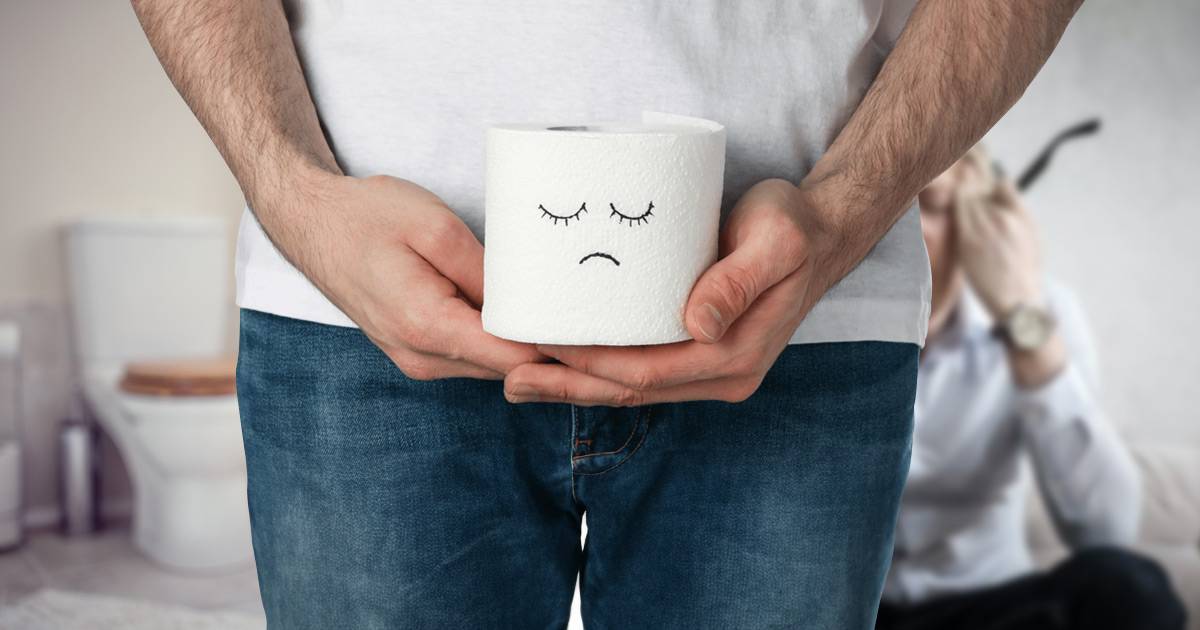How Does Stress Physically Manifest as Constipation?

Every day, we deal with a lot of stress. While we usually think about how stress affects our minds and emotions, it also significantly impacts our physical health, especially our digestion. One common digestive problem related to stress is constipation. Understand how stress and constipation are connected and get useful tips on handling them.
Does stress cause constipation?
Stress is how our bodies respond to challenging or demanding situations. When we are worried, our bodies release hormones like adrenaline and cortisol. These help us deal with the situation, whether to fight or run away. This is called the “fight-or-flight” response.
While this response is helpful in short-term, stressful situations, long-term stress can harm our health. Constant exposure to stress hormones can weaken our immune system, increase inflammation, and disturb how our body and digestive systems work.
The Connection of Stress and Constipation
The connection between stress and constipation is complex and involves various physiological and psychological mechanisms. Stress can make you constipated in a few ways:
- Stress Hormones: When you’re under a lot of stress, your body makes stress hormones like adrenaline and cortisol. These hormones prepare your body for a “fight or flight” reaction, which can make digestion less effective. High levels of cortisol can alter gut motility, leading to constipation.
- Autonomic Nervous System: The autonomic nervous system controls automatic body processes like digestion. Stress makes it work. If your autonomic nervous system is overactive, it can change the way you go to the bathroom and make you constipated.
- Slowed Digestive Movement: Stress can slow down how food moves through your digestive system. When you’re stressed, your body redirects blood away from your digestive tract to your muscles and brain, which can make food move more slowly through your intestines and cause constipation.
- Reduced Digestive Enzymes: Stress can stop the production of enzymes that break down food and help the body receive nutrients. This can make digestion worse and lead to constipation.
- Disrupted Gut Bacteria: Stress can upset the balance of good bacteria in your gut. When these bacteria are out of balance, it can cause digestive issues like constipation.
- Increased Inflammation: Stress can cause inflammation in your body, which may irritate your digestive tract and contribute to constipation.
- Changes in Eating Habits: When stressed, people often skip meals, choose unhealthy foods, or forget to drink enough water, all of which can lead to constipation.
What are the symptoms of stress-induced constipation?
Constipation due to stress can show up with symptoms similar to those from other causes, including:
- Having bowel movements less than three times a week
- Stools that are hard, dry, or lumpy
- Trouble passing stools
- A feeling that your bowel isn’t empty
- Abdominal pain or discomfort
- Bloating
If you’ve had these symptoms for a long time, it’s essential to see a healthcare professional. They can help check for any other health issues and suggest the best treatment.
How to manage constipation caused by stress?
To manage constipation caused by stress, a combination of lifestyle changes and, if needed, medical treatments can be effective. Here are some strategies to help reduce stress and relieve constipation:
- Stress Management: Deep breathing, meditation, yoga, or regular exercise are all good ways to relieve stress and help your stomach.
- Dietary Changes: Eat a diet high in fiber with fruits, vegetables, whole grains, and legumes to help keep your bowel movements regular. Also, to stay refreshed, drink a lot of water all day.
- Exercise: Regular exercise can help your digestive system work better and help you go to the bathroom regularly. A simple daily walk can help.
- Probiotics: Taking pills or eating foods that are high in probiotics can help keep the good bacteria in your gut in balance, which may help with constipation.
- Laxatives: Sometimes, over-the-counter or prescription laxatives might be needed to relieve constipation. Make sure to consult a healthcare professional before using them to ensure they’re used correctly.
- Cognitive-Behavioral Therapy (CBT): Cognitive-behavioral therapy (CBT) can help you figure out and change the wrong ideas and actions that make you stressed out and irritable.
When to seek professional help?
It is crucial to seek medical advice if constipation persists despite lifestyle changes or if it is associated with other alarming symptoms like severe abdominal pain, blood in the stools, or unintentional weight loss. These might be indicators of more serious conditions that demand a doctor’s examination and care.
Stress can actually make you constipate.
Stress affects more than just our mood—it can also cause physical problems like constipation. By learning how stress impacts digestion and recognizing the signs of constipation, you can take steps to manage it. Using stress-relief techniques, eating a healthy diet, staying active, and using probiotics or medications can help. If constipation continues or worsens, it’s essential to see a doctor to ensure there aren’t other health issues.
